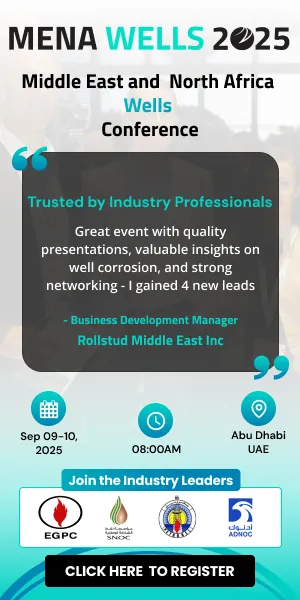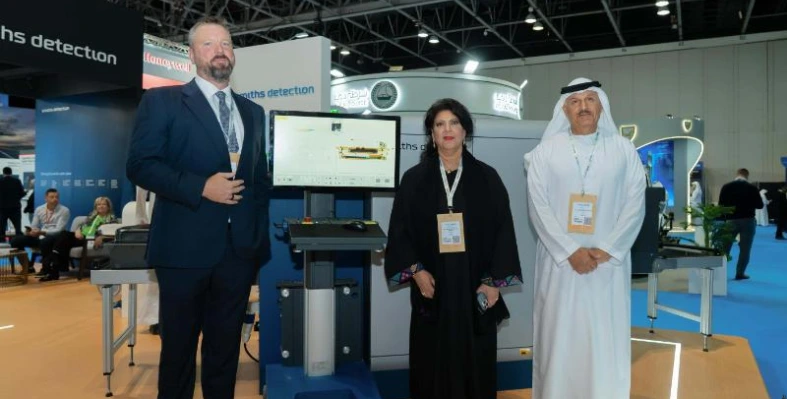In The Spotlight
Following the global digital transformation trend, Dubai Electricity and Water Authority (DEWA) and Microsoft have joined hands together to transform utility sector
HE Saeed Mohammed Al Tayer, MD & CEO, DEWA had an official meeting with Naim Yazbeck, general manager of Microsoft UAE, to delve into new opportunities for collaboration in digital transformation, artificial intelligence (AI), and cloud computing in the utilities sector.
The main agenda of meeting was how Microsoft’s innovative technologies can advocate DEWA’s innovation-led projects and help achieve its sustainability goals. Both parties discussed improving operational efficiency and building next-generation infrastructure alongwith the Dubai Clean Energy Strategy 2050 and the UAE Net Zero by 2050 Strategic Initiative.
Gen AI tools
HE Al Tayer said, “Our collaboration with Microsoft is instrumental in transforming DEWA to become the world’s first AI-native utility, leveraging artificial intelligence across all core operations. By integrating AI and cloud-based solutions, we aim to enhance our renewable energy capabilities, drive operational excellence and provide world-class services in line with Dubai’s vision for sustainability and innovation.”
Yazbeck acknowledging the Microsoft’s support for the UAE’s digital future stated, “Our work with energy leaders like DEWA enables us to co-develop transformative solutions that redefine energy management, advance sustainability goals and build intelligent, resilient infrastructure across Dubai.”
DEWA is already employing Microsoft’s generative AI tools, like the Microsoft Power Platform and the Microsoft 365 Copilot. These have helped DEWA improve internal productivity, service quality, and satisfaction for both customers as well as employees.
DEWA has been an initial investor in AI since 2017 and wasfirst among the utilities globally to adopt Microsoft’s Copilot platform.
This new partnership reflects Dubai’s focus on innovation, sustainability, and technology-driven growth in the energy sector.
Also read: Middle East Energy 2025 closes with record turnout

Johnson Controls Arabia will deliver a state-of-the-art cooling solution powered by YORK. (Image source: JCA)
Johnson Controls Arabia has entered into a strategic partnership with Modern Building Leaders (MBL) to provide and operate a fully integrated YORK cooling system for the new CEER manufacturing facility in King Abdullah Economic City.
Johnson Controls Arabia is a global leader in HVAC systems, smart building controls, and energy efficiency.
The company said that its collaboration with CEER represents a significant advancement in Saudi Arabia’s industrial technology landscape and supports the Kingdom’s “trailblazing end-to-end electric vehicle brand.”
Under the agreement, Johnson Controls Arabia will deliver a state-of-the-art cooling solution powered by YORK technologies, featuring 12 chillers and various cooling units with a combined capacity of 33,000 TR.
HVAC innovations
The CEER facility, a cornerstone of Saudi Arabia’s electric vehicle industry, is designed to produce world-class electric cars, prioritising sustainability, efficiency, and cutting-edge technology.
The partnership aligns with the launch of the region’s first YORK air-cooled chiller production line, boasting a 600-ton capacity, at the YORK manufacturing complex in King Abdullah Economic City.
This milestone was accompanied by the opening of Saudi Arabia’s first AHRI-certified performance testing laboratory for air-cooled chillers of this capacity, cementing the Kingdom’s position as a regional hub for innovation in the HVAC and cooling sector.
The inauguration ceremony was attended by senior executives, including Tareq Telmesani, CEO of MBL, and Mohamed Fathy El-Bordany, Plant Facility and Maintenance Director at CEER.
This agreement underscores Johnson Controls Arabia’s commitment to supporting major manufacturing initiatives in Saudi Arabia, enhancing its role as a trusted partner in delivering high-efficiency, sustainable cooling solutions that meet global standards and bolstering the Kingdom’s industrial infrastructure.
Commenting on the milestone, Dr. Mohanad AlShaikh, CEO of Johnson Controls Arabia, stated, “We are proud to play a role in this ambitious national project that reflects our commitment to delivering smart, sustainable solutions aligned with Saudi Vision 2030. Our success in this initiative demonstrates the trust our partners place in YORK’s technical strength and reliability, and our ability to provide integrated solutions that rival the world’s leading providers, driven by expert engineering teams, fast execution, and excellent after-sales support.”
Editor's pick
Linz Electric SpA, a key subsidiary of the Pedrollo Group, has acquired a 60% stake in Germany’s KW Generator GmbH (KWG), marking a pivotal milestone in its ambitious international growth strategy.
With an annual turnover of €500mn, the group is now a formidable player in the global energy transition, addressing the evolving demands of sustainable and reliable power solutions.
The transaction builds on a nearly two-decade partnership between Linz Electric and KWG, merging Italian innovation with German engineering precision to create a European powerhouse in the energy sector.
By combining their complementary alternator ranges, the two companies have established one of the most comprehensive product portfolios globally, serving a wide array of applications.
These range from traditional generator sets to advanced energy transition support systems, as well as specialised solutions for mobile refrigeration, earthmoving equipment, and machinery requiring continuous, reliable, and flexible power.
This strategic alignment positions Linz Electric and KWG to tackle pressing global energy challenges, particularly as the reliability of power supply becomes increasingly critical amid growing concerns over blackouts and grid instability.
KWG brings to the partnership its advanced product lines and deep-rooted relationships with leading original equipment manufacturer (OEM) customers in demanding sectors, including material handling, heavy-duty environments, and mobile refrigeration.
These industries require robust, high-performance power solutions capable of operating in extreme conditions, and KWG’s expertise enhances the partnership’s ability to meet these needs.
Linz Electric’s well-established global distribution network within the Pedrollo Group, along with its direct subsidiary in the United States, plays a key role in opening up new markets and customer segments for KWG..
Growing customer base
This infrastructure opens new markets and customer segments for KWG, enabling the partnership to expand its reach and deliver innovative power solutions to a broader audience.
The acquisition underscores Linz Electric’s rising prominence in a rapidly transforming energy market, where innovation, sustainability, and strategic alliances are critical drivers of industrial value and long-term competitiveness.
By integrating KWG’s capabilities, Linz Electric strengthens its ability to deliver cutting-edge solutions that address the complexities of modern energy demands.
The partnership also aligns with the Pedrollo Group’s broader mission to drive progress across its core business areas.
With a diversified portfolio spanning water management, applied technology, and now a reinforced presence in energy, the group solidifies its reputation as an authoritative and innovative leader in international markets.
This move positions the Pedrollo Group as a key contributor to the global energy transition, offering solutions that support sustainable development and energy resilience worldwide.
As part of the Pedrollo Group, Linz Electric benefits from the Group’s financial stability and global reach, which amplify the strategic value of this partnership.
The acquisition not only enhances the energy business area but also reinforces the Group’s commitment to fostering innovation and collaboration across its operations in Italy, the United States, Spain, Germany, and beyond.
By uniting Linz Electric’s and KWG’s expertise, vision, and industrial strengths, this partnership is poised to deliver concrete, scalable solutions to meet the evolving needs of the global energy sector, ensuring reliability and sustainability for future generations.
Giulio Pedrollo, CEO of the Pedrollo Group and founder of Linz Electric, said," After years of collaboration, I am excited about the opportunities this transaction offers: the partnership between Linz Electric and KWG is a clear example of how international cooperation between companies that share values, vision and expertise can generate new opportunities for growth and development. Together, we are ready to face the great challenges of global energy transformation. We will continue to invest with determination in innovation, quality and customer service, while keeping our production roots firmly anchored in our home territories. For us, this project represents a concrete testimony to the value of European manufacturing excellence, capable of competing and innovating on an international scale.''
Michael Werner, CEO and shareholder of KWG, added, "With Linz as our majority partner, we are confident in our ability to address the competitive landscape and capitalize on new growth opportunities. This partnership demonstrates our commitment to providing superior products and services to our customers."
ACCIONA, along with local firm DHCU, obtained an €35mn (US$38.15mn) contract from Egypt’s Construction Authority for Potable Water and Wastewater (CAPW) so it can operate and maintain Phase II of Cairo's Gabal El Asfar wastewater treatment complex.
The eight-year agreement rehabilitates also upgrades two major plants within the facility so that they can each treat 500,000 m³ per day.
Other developments
The watertech company Kumulus Water, which turns air into potable water, has raised US$3.5mn in seed money.
Bpifrance led the seed funding through France 2030 SGPI and the Île-de-France Region, with participation from other international regional and investors, including Plus VC, MENA's most active VC, Khalys Venture, Flat6Labs, Europe's leading bottled water group Spadel, and several family offices and founders from Europe and North Africa.
Iheb Triki and Mohamed Ali Abid founded Kumulus in 2021. The company creates and produces atmospheric water generators, which use air humidity to produce safe drinking water without having any pre-existing electrical or water infrastructure.
Across Europe, Africa, and the Middle East, the company's technologies are currently in use in hotels, schools, and remote settlements.
With this financing, Kumulus will debut the Kumulus Boks, a new range of industrial-grade, cutting-edge Atmospheric Water Generators (AWG) that supply pure drinking water straight from air humidity, as well as expand operations in Tunisia, France, and Spain, and prepare for market entry into Saudi Arabia.
Producing water locally
“We’re deeply grateful to our existing and new investors for their trust and continued support,” said Iheb Triki, CEO and co-founder of Kumulus Water. “Their involvement is a strong vote of confidence in our technology and our vision. At Kumulus, we believe access to clean drinking water should not depend on existing infrastructure. With this funding, we’re taking a major step toward making clean water accessible, sustainable, and decentralised—especially for the communities that need it most.”
“This funding allows us to scale not just production, but impact,” said Mohamed Ali Abid, co-founder and CTO of Kumulus Water. “We have spent the past few years refining a technology that can operate reliably in some of the harshest and most water-stressed environments. Now, we are ready to deploy it at scale and bring truly off-grid, sustainable water access to more communities across the region and beyond.”
Hasan Haider, founder and managing partner at +VC, said, “Kumulus is building a scalable, climate-resilient solution to one of the most critical regional and global challenges-access to clean drinking water. At +VC, we invest in founders who are not only mission-driven, solving real-world problems but also executing with commercially scalable solutions. Kumulus fits that profile and is well-positioned for both regional and global growth. We’re excited to support their journey as they scale meaningful impact, making them stand out in the climate-tech space.”
“We believe the world needs complementary solutions to address the growing challenge of drinking water scarcity,” added Clément Yvorra, global business development manager at Spadel. “What convinced us is Kumulus’ ability to produce water locally, without packaging or transportation, offering a truly sustainable alternative.”
The International Code Council (ICC), a global authority on building safety and construction standards, will take part in the 7th edition of Big 5 Construct Egypt, held from 17-19 June 2025 at the Egypt International Exhibition Center.
Mohammed Amer, managing director – ICC MENA, will present a session titled “Highlighting the Impact of ICC on Innovative Building Practices in the MENA.”
His address will explore ICC’s expanding role in the region, with a focus on its International Codes (I-Codes) and the wider ICC Family of Solutions.
Using real-world case studies, Amer will demonstrate how ICC works with governments, developers, and industry experts to promote international best practices throughout the MENA construction ecosystem.
In Egypt, ICC plays a vital role in advocating for modern regulatory frameworks, encouraging safer, more sustainable infrastructure. Through strategic partnerships and capacity-building initiatives, the organisation continues to support the country’s construction growth, while aligning it with global standards.
Bringing together more than 350 exhibitors from over 20 countries, Big 5 Construct Egypt showcases cutting-edge innovations driving regional construction forward.
Held under the patronage of H.E. Dr. Mostafa Madbouly, Prime Minister of Egypt, and supported by the Egyptian Armed Forces Engineering Authority, the event serves as a key platform for shaping the built environment in North Africa.
Speaking about ICC’s participation, Amer stated, “At ICC, our mission is to support governments and industry stakeholders in implementing internationally recognised codes and standards that enhance safety, resilience, and sustainability. In Egypt and across the GCC, our efforts have played a key role in advancing building regulatory modernisation, integrating smart technologies, and strengthening the professional capacity needed to apply best practices effectively.”
Also read: A low-carbon future for the GCC construction industry?
Power Metallic Mines Inc., a prominent exploration and development company, has been granted the exploration licence for the Jabal Baudan project in Saudi Arabia’s Jabal Sayid Mineralised Belt.
Power Metallic is now one of the few foreign companies to secure mining concessions in the Kingdom, following a successful bid in a competitive licensing process.
CEO Terry Lynch, said, "We are honoured to have been awarded the Jabal Baudan exploration license, marking a pivotal step in our strategy to expand our portfolio into one of the world's most promising mineral belts. This achievement underscores our commitment to advancing mineral exploration globally and highlights our ability to secure high-value assets in competitive jurisdictions."
Strategic location in a mineral-rich region
The Jabal Baudan property, spanning over 200 sq km, is the largest of seven exploration packages offered in the Jabal Sayid belt.
Located approximately 150 km south of Jeddah along the western Red Sea coastal plain, the site is highly prospective for copper, gold, and zinc mineralisation.
The region is renowned for its volcanic massive sulphide (VMS) deposits, including the world-class Jabal Sayid Mine and the promising Umm ad Damar deposit.
Situated in rugged mountainous terrain intersected by wadi systems draining to the Red Sea, Jabal Baudan is underlain by late Proterozoic volcanic, volcaniclastic, and sedimentary rocks, intruded by younger plutonic rocks ranging from gabbro to granite.
This geological setting mirrors that of the nearby Umm Hiljan deposit, indicating strong potential for VMS-style mineralisation.
Historical exploration by BRGM, Riofinex, and USGS between 1966 and 1985 identified siliceous volcanic rocks and “ironstone,” suggesting mineralising systems conducive to VMS deposits.
Exploration strategy and support
Power Metallic plans to utilise historical aeromagnetic survey data to refine its exploration approach and pinpoint priority target areas.
The project is supported by Saudi Arabia’s Exploration Enablement Program (EEP), a US$182mn initiative designed to stimulate and de-risk mineral exploration investments.
The EEP offers up to US$2mn per exploration licence, with a cap of 15 licences per company, fostering knowledge exchange and growth.
This support will enable Power Metallic to enhance its geological understanding of Jabal Baudan and prioritise high-potential zones for advanced exploration.
"The Jabal Baudan site is located at the heart of the most prospective region of Saudi Arabia. It is easily reachable by world quality infrastructure and initial samples have confirmed strong potential for a large range of minerals" Dr Remi Piet, senior partner at Embellie Advisory.
You may be interested in:
Rokbak’s telematics revolution: cutting fuel costs and emissions at work sites
Metso warns against counterfeit parts in mining equipment
Komatsu launches hydrogen dump truck for the mining industry
Abu Dhabi-based petrochemicals company Borouge is collaborating with Honeywell to conduct a proof of concept for AI-powered autonomous operations, which is is set to deliver the petrochemical industry’s first AI-driven control room designed for full-scale, real-time operation
The initiative aims to deploy the proof-of-concept technologies to enhance Borouge’s operations across its Ruwais facilities in the UAE. Autonomous operations will enable Borouge to optimise production, reduce energy use, and enhance safety while reducing costs at what will be the single largest petrochemical site in the world. Both companies will leverage their expertise in process technology and autonomous control capabilities to identify new opportunities to deploy Agentic AI solutions and advanced machine learning algorithms.
The project is a key component of Borouge's companywide AIDT programme, which is projected to generate US$575mn in value this year. In 2024, Borouge’s portfolio of over 200 AIDT initiatives—spanning operations, health and safety, sales, sustainability, and product innovation—generated $573mn in value
New systems
Borouge has already installed the world’s largest Real-Time Optimisation (RTO) system across three large-scale ethane crackers and 20 furnaces. The initiative analyses over 2,500 parameters per minute, enabling instant data-driven decisions, significantly enhancing productivity, optimising energy consumption and reducing emissions. The unique system minimises ethane dumping and optimises resource use, in line with Borouge's commitment to sustainable growth and operational excellence.
Borouge has invested in its state-of-the-art Innovation Centre located in Abu Dhabi and is now using advanced AI-powered tools to accelerate innovation, enabling the company to bring new grades of advanced polymers to market quicker. In collaboration with ADNOC AI Lab, Borouge has completed its first “Polymer Optimisation” programme, achieving a 97% accuracy, enabling Borouge to reduce its development timeline from months to weeks.
Hazeem Sultan Al Suwaidi, chief executive officer of Borouge, said, “Borouge's AI, Digitalisation, and Technology (AIDT) transformation programme is setting new standards in operations, innovation and business performance. By collaborating with global AI leaders such as Honeywell, we are accelerating growth, driving efficiency, and enhancing shareholder value. This project further strengthens Borouge’s competitive edge as we continue to deliver on our ambitious AIDT roadmap.”
George Bou Mitri, president of Honeywell Industrial Automation, Middle East, Turkey, Africa, Central Asia, said, “By integrating AI and automation technologies into core operations, we are helping unlock new levels of efficiency, safety, and performance. This agreement shows how advanced technologies, applied with purpose, can reshape industrial operations at scale.”
Saudi Global Ports Group (SGP), through its subsidiary Modern Port Services Company Limited (SGP Multipurpose Terminals, or SGPMP), has signed four 20-year concession agreements with the Saudi Ports Authority (Mawani) to operate multipurpose terminals along the Eastern Coast of Saudi Arabia.
The terminals are located at King Abdulaziz Port Dammam (KAPD), Jubail Commercial Port (JCP), King Fahad Industrial Port Jubail (KFIP), and Ras Al-Khair Port (RAK).
The agreements were signed by SGP CEO Rob Harrison and Mawani’s Acting President Mazen bin Ahmed Al-Turki, in the presence of the Minister of Transport and Logistics Services, H.E. Saleh Al Jasser, along with Saudi Global Ports chairman Eng. Abdullah Al Zamil and vice chairman Bakr AlMuhanna.
Already a key player in Saudi Arabia’s terminal operations, SGP manages container terminals at KAPD and operates the Riyadh Dry Port Ecosystem, including the Riyadh Dry Port, Riyadh Empty Yard, and Dammam Empty Container Yard.
It is also developing the Dammam Integrated Logistics Zone (DILZ). In 2024, SGP handled more than 4 million TEUs across its network, reinforcing its leadership in the sector.
Expanding logistical operations
Under the new concessions, SGP plans to invest over SAR 700 million (approximately US$187mn) to modernise the terminals and procure advanced equipment.
The group intends to integrate the four new sites with its existing network in Dammam and Riyadh to create efficient, resilient gateways that support Saudi Arabia’s rapid development and major infrastructure projects.
With the support of its technical partner PSA International, SGP will launch tailored training programmes focused on safety, operational efficiency, and sustainability, drawing on PSA’s global experience in managing multipurpose terminals.
Chairman of the Board of Saudi Global Ports Company, Eng. Abdullah Al Zamil said, “SGP, as one of the National Champions for Ports and Logistics in Saudi Arabia, is proud to be entrusted with this opportunity to nurture and grow the four multipurpose terminals along the Eastern Coast of Saudi Arabia. We will strive to provide the same reliability, integration and spirit of innovation at the multipurpose terminals as we have done so for the container terminals at KAPD, the Riyadh Dry Port Ecosystem and DILZ. We are grateful to Mawani for entrusting SGP with these concessions.”
Vice chairman of the Saudi Global Ports Board, Bakr AlMuhanna highlighted, “The agreement between SGP and Mawani is pivotal in driving economic diversification under Saudi Arabia’s Vision 2030. By integrating and modernising key terminals, SGP, together with its technical partner, PSA International, brings their expertise to enhance supply chain efficiency, support critical mega projects, and strengthen the Kingdom’s position as a global logistics hub.”
Regional CEO Europe & Mediterranean and Middle East South Asia, PSA International, Vincent Ng said, “PSA is proud to be alongside Saudi Arabia’s growth journey for over 10 years. We are excited to continue to work alongside PIF, Mawani and other stakeholders in the Kingdom, supporting SGP with our global expertise and network as it expands its ecosystem to include capabilities that can bring new and differentiated value to the Kingdom’s ports and logistics sector.”






























































